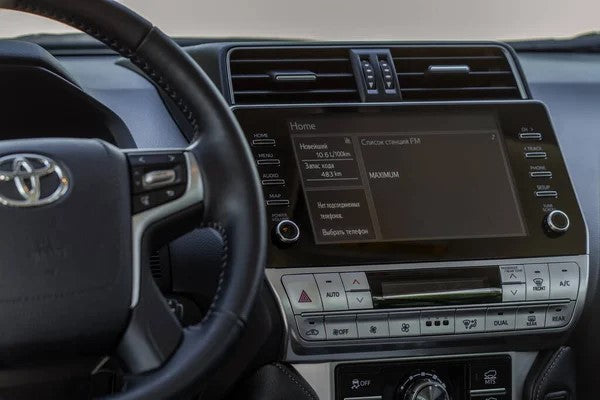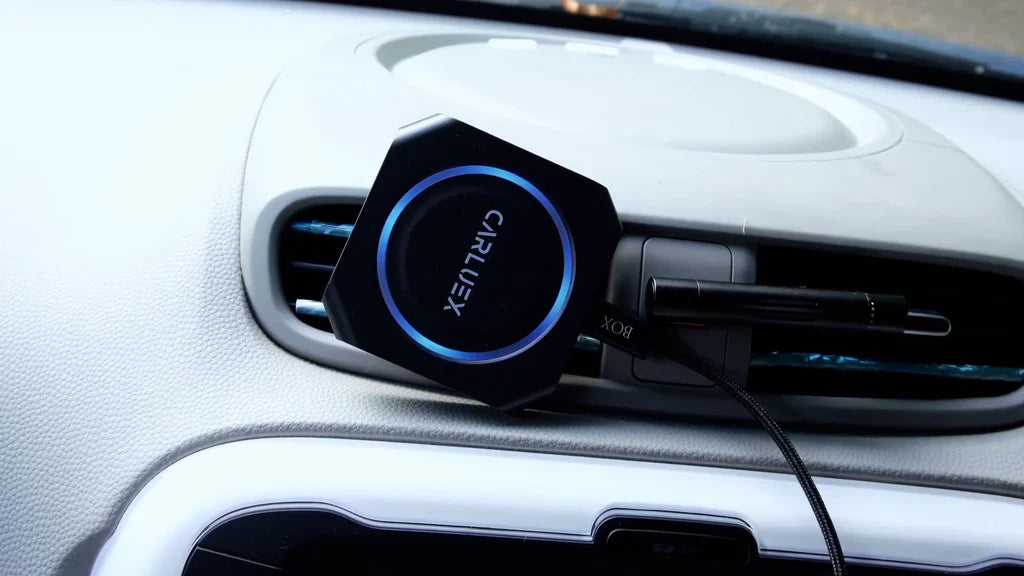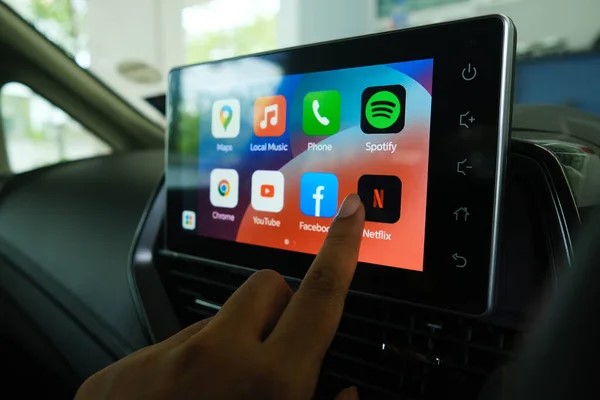Adding Android Auto to your Toyota can transform your driving experience, giving you seamless access to apps and features right from your dashboard. With just a few steps, you can enjoy music, navigation, and hands-free calls, all designed to keep you focused on the road.
This guide will walk you through everything you need to know, ensuring your Toyota is compatible and ready for this technology. Understanding what you'll need to enable Android Auto is key, including checking your device and your vehicle’s software version.
You'll find that setting it up is simple, whether using a USB connection or going wireless.
Let’s dive in and empower your drives with modern technology, enhancing the way you connect with your vehicle.
Understanding Android Auto

Android Auto is designed to make driving safer and more convenient. You can easily connect your smartphone to your vehicle to access various apps and features that enhance your driving experience. Let’s take a closer look at what Android Auto is, its key features, and how it compares to Apple CarPlay.
Defining Android Auto
Android Auto is a mobile app developed by Google. It allows you to connect your Android smartphone to your car’s infotainment system. This connection gives you easy access to your favorite apps for navigation, music, messaging, and more.
When you connect your phone, your car’s display mirrors the interface of specific apps. This way, you can control everything without distractions.
Navigating is easier with voice commands. You just speak to request directions, send messages, or play music. It helps keep your focus on the road.
Key Features of Android Auto
Android Auto comes packed with useful features that can make your drive more enjoyable. Here are some of the main highlights:
- Navigation: Use Google Maps or Waze for real-time traffic updates, routes, and directions.
- Music and Podcasts: Access your favorite streaming services like Spotify or YouTube Music for endless listening options.
- Messaging: Send and receive texts through apps like WhatsApp, all using voice commands to stay hands-free.
- Phone Calls: Make calls using your voice, allowing you to stay connected without taking your hands off the wheel.
All these features can help you stay organized and entertained while driving. Plus, Android Auto integrates with many apps, giving you a personalized experience.
Android Auto vs. Apple CarPlay
While both Android Auto and Apple CarPlay provide similar functionalities, they cater to different smartphone users.
- Compatible Devices: Android Auto works with Android devices, while Apple CarPlay is for iPhone users.
- Interface: Android Auto uses a customizable interface where you can adjust widgets. CarPlay has a more consistent design across apps.
- Voice Assistants: Android Auto uses Google Assistant, while CarPlay relies on Siri for voice commands.
Choosing between the two mainly depends on your phone brand. If you’re an Android user, Android Auto can elevate your driving experience, offering seamless connectivity and control.
Compatibility and Requirements

To use Android Auto in your Toyota, it's important to check both vehicle and smartphone compatibility. You’ll need to ensure your car model and your mobile device meet certain specifications. Here’s what you need to know.
Compatible Toyota Models
Most newer Toyota models support Android Auto. Here’s a quick list of compatible vehicles:
- 2020 and newer RAV4
- 2020 and newer Camry
- 2020 and newer Corolla
- 2020 and newer Highlander
- 2020 and newer Tacoma
If your Toyota is not listed here, you might need a software update. You can check with your local Toyota dealer for specifics on your model's compatibility.
Smartphone and OS Compatibility
For Android Auto to work, you need a compatible smartphone. This typically includes:
- Android phones running version 6.0 (Marshmallow) or higher.
- Ensure your phone has the Google Play Store app installed.
You’ll also want to keep your device updated. Look for any system updates regularly to avoid connection issues with Android Auto.
How to Use Android Auto on a Toyota?

Using Android Auto in your Toyota is a seamless process that enhances your driving experience. You can easily download the app, connect your smartphone, and configure the system to get started.
Downloading the Android Auto App
First, you need to download the Android Auto app on your smartphone. Open the Google Play Store and search for "Android Auto." Tap on the Install button to download and install the app.
Make sure your phone is running at least Android 6.0 (Marshmallow) or higher for compatibility. Once installed, open the app and follow any initial setup prompts on your screen.
This app will enable your Toyota's multimedia system to interact with your phone, allowing you to access apps for navigation, music, and more directly from your car’s touchscreen display.
Connecting Your Smartphone to Your Toyota
To connect your phone to your Toyota, you can either use a USB cable or Bluetooth.
If you’re opting for a USB connection, plug the cable into your phone and the USB port in your car.
Ensure Bluetooth is turned on in your phone's settings.
For a wireless connection, go to your Toyota's multimedia screen, select Settings, and then Bluetooth & devices.
Choose Add another device, and your phone should appear. Select your phone and follow the on-screen instructions to complete the pairing.
Configuring Android Auto for the First Time
After connecting your phone, you need to configure Android Auto.
On your car’s multimedia display, go to the Setup Menu. Look for Projection Settings and select Android Auto. Make sure to toggle the setting to ON.
Unlock your phone when prompted and follow any on-screen instructions. Your phone may require you to agree to certain settings. Once set up, your apps will display on your Toyota's screen, ready for you to use while driving.
If you're looking for a wireless connection, consider checking out adapters like those from carluex.store for a hassle-free experience!
Optimizing Your Experience
When using Android Auto in your Toyota, there are several ways to enhance your experience. You can customize your home screen, use voice commands effectively, and manage third-party apps to get the most out of your setup. Let’s dive into each aspect.
Customizing the Home Screen
Your home screen in Android Auto can be tailored to fit your preferences. You can choose which apps appear front and center for easy access.
To customize, tap and hold an app icon to move it or remove it based on your needs.
Key Features:
- Tiles: Use tiles to organize your favorite apps. Prioritize music, navigation, and messaging apps.
- Shortcuts: Create shortcuts to important contacts for faster dialing.
This setup makes navigation easier and helps you stay focused on the road. You can also adjust the background to fit your style, adding a personal touch to your driving experience.
Using Voice Commands With Google Assistant
Using voice commands is a game-changer for hands-free convenience.
Activate Google Assistant by saying "Hey Google" or tapping the microphone icon.
This allows you to make calls, send texts, and control music without taking your hands off the wheel.
Voice Command Tips:
- Be Clear: Speak clearly for better recognition.
- Command Examples: Try saying things like “Play my driving playlist” or “Navigate to home.”
This feature not only increases safety but also keeps your focus on driving, letting you maintain a smooth ride.
Managing Third-Party Apps
Managing third-party apps on Android Auto lets you customize your experience further. You can add apps like Spotify, Waze, or Audible for tailored entertainment and navigation choices.
Benefits of Third-Party Apps:
- Enhanced Features: Get additional functionalities compared to built-in apps.
- Streamlined Access: Easily switch between apps to find what you need.
Wireless Android Auto
Wireless Android Auto lets you enjoy features without being tethered to your car with a cable. With Bluetooth and Wi-Fi, you can easily connect your phone to your Toyota for a seamless experience.
Setting up Wireless Android Auto
To set up wireless Android Auto, first ensure your Android phone has Bluetooth turned on.
Next, in your vehicle, go to the settings on your multimedia screen. Tap the gear icon, then go to 'Bluetooth & devices' and select 'Add another device'.
Choose 'Search for devices' and look for your phone's name in the list.
Once your phone appears, select it to pair. Make sure to enable 'Use for Android Auto' in your phone's Bluetooth settings. This will allow the phone to connect wirelessly for calls, messages, and navigation.
Keeping your phone’s Bluetooth, Wi-Fi, and location services on will offer the best performance. Enjoy hands-free access to your apps!
Troubleshooting Wireless Connectivity Issues
If you face connectivity issues with wireless Android Auto, start with basic checks.
Ensure your phone and car’s software are up to date. Then, restart both your phone and your vehicle's infotainment system.
Sometimes, re-establishing the connection helps. Unpair your phone from the car and pair it again.
If that doesn’t work, try clearing the Bluetooth cache on your phone.
Keep in mind that obstacles can affect wireless connectivity. Ensure your phone is within a reasonable range of the car's system.
If problems persist, consider using a USB cable as a backup for a more stable connection. You might also explore the best wireless adapters available.
Conclusion
Deciding to integrate Android Auto into your Toyota can enhance your driving experience. It opens up a world of features, making it easier to stay connected while on the road. Several brands offer infotainment systems with Android Auto built in. Research compatibility with your vehicle’s setup for a smooth installation.
You could also consider wireless adapters to let you use Android Auto wirelessly, providing more flexibility! Look for features that suit your needs, such as touchscreen capability and user-friendly interfaces. An aftermarket upgrade can be a cost-effective way to enhance your driving experience.
Frequently Asked Questions
Does Toyota have Android Auto?
Yes, many Toyota models come equipped with Android Auto. This feature allows you to connect your phone to your vehicle's system for easier access to apps, navigation, and more.
How do I upgrade my Toyota to Android Auto?
To upgrade your Toyota to Android Auto, you usually need the right multimedia system.
You can check if your model supports it and then follow the setup instructions. If your vehicle doesn’t have it, consider using a wireless adapter for a hassle-free upgrade.
What year did Toyota add Android Auto?
Toyota began offering Android Auto in many of its models starting in 2019. If your Toyota is from that year or later, it's likely equipped with the feature.
How can I tell if my car has Android Auto?
You can check your car's screen for the Android Auto logo or look in the settings menu. If you see options for Android Auto in the projection settings, then your vehicle supports it.








Laat een reactie achter
Deze site wordt beschermd door hCaptcha en het privacybeleid en de servicevoorwaarden van hCaptcha zijn van toepassing.